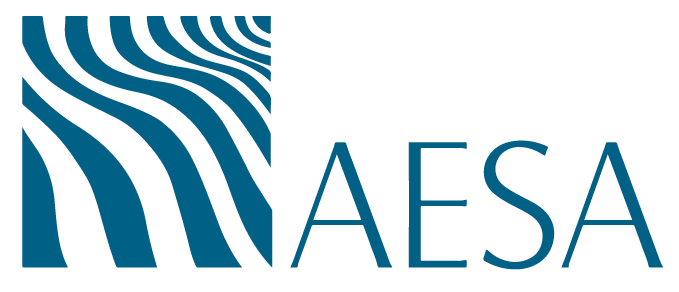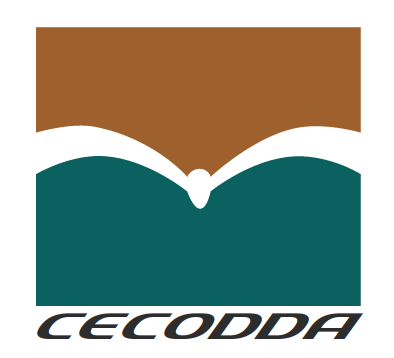Harnessing the Blue Economy for Sustainable Economic Development of ACP States
Posted on: June 25, 2021

The 14th edition of the European Development Days (EDD 2021) took place on 15-16 June 2021 under the theme “The Green Deal for a Sustainable future” and was fully digital due to COVID-19 restrictions. The EU-ACP TradeCom II Programme organised a lab debate on “Harnessing the Blue Economy for Sustainable Economic Development of ACP States with the subtitle: Attaining SDG 14: Investing to “conserve and sustainably use the oceans and marine resources for sustainable development” in ACP Countries
The session moderated by Ms Cristelle Pratt, the Assistant Secretary-General for the Environment and Climate Action of OACPS Secretariat, discussed the implementation of blue economy initiatives as they relate to trade and investment and measures to attain SDG 14 whose objective is to “conserve and sustainably use the oceans, seas and marine resources for sustainable development,” and other related goals. Discussions centred on emerging opportunities that the blue economy offers in areas such as coastal fisheries and aquaculture, biotechnology, maritime transport and energy.
Cristelle Pratt opened the floor recalling that oceans cover 72% of the surface of our blue planet and constitute more than 95% of the biosphere. The world’s oceans, seas, and coastal areas are vital to the livelihoods and food security of billions of people around the world, and to the economic prosperity of many nations.
The blue economy resource base in the ACP Group is more than twice of its land mass; three times larger than their land mass for the Caribbean ACP States, and over 40 times larger than the Pacific region’s land mass.
The ACP countries have a great potential to exploit the maritime resources and deep-sea minerals and pharmaceuticals, and alternative renewable energy resources for sustainable expansion and intensification of, inter alia, inshore and oceanic fish production, recreation, tourism, and transport sectors. These key aspects are also captured in the brochure that was prepared for this session and widely distributed.
The contribution of Salome TAUFA, Resource Economist of the Pacific Islands Secretariat, focused on two policy instruments, under development, aimed at promoting the sustainable use of the Pacific Ocean resources through the blue economy lens.
In 2019, the Forum Leaders noted that securing the future of the Blue Pacific requires a long-term vision and carefully considered the strategy for regionalism, and a collective commitment to achieve it. Reflecting on this, Forum Leaders endorsed the development of the 2050 Strategy for the Blue Pacific Continent.
This Strategy is still under development and it has been undergoing comprehensive consultations with Forum Leaders’ members and key stakeholders. Ocean is indeed a key underpinning and cross cutting strategic area of focus.
In doing so, the 2050 Strategy will consider science, innovation and research, access to sustainable marine transport, renewable energy, biodiversity and ecosystems, multi-stakeholder partnerships and access to sustainable financing.
The second policy instrument is the Blue Pacific Economic Strategy. Since the 2050 Strategy for the Blue Pacific will be a high level, long-term policy instrument that will guide works in the Pacific Region in the next 30 years, to complement that, a concept note to develop a Blue Pacific Economic Strategy has been developed with the aim to assist the Forum Members to stabilize their economies against COVID-19 impacts, build resilience to future shocks and support their long-term recovery efforts. A key feature of this Strategy will be on the sustainable ocean economy in which the blue economy will be a driver of ocean-based economic activities.
Key areas for consideration include fisheries, a long-standing priority area for regional co-operation amongst Forum Members. To diversify the revenue streams, the Members will look to increase and explore other opportunities including nature-based solutions and more innovative financing mechanism.
The Strategy will also explore opportunities in aquaculture, an area that is largely underdeveloped in the Pacific, maritime transport, renewable energy and ocean finance.
This Strategy will articulate and capture existing policy instruments to harness the blue economy including the Pacific Aid for Trade Strategy 2020-2025 which has a critical role in turning trade policies into real world trade development.
It will also incorporate a Pacific Islands Private Sector Strategy that is also under development which aims to assist the private sector to boost trade and business competitiveness as well as facilitate collaboration to promote business growth.
Opening his intervention, Jean Paul Adam, Director of the Technology, Climate Change and Natural Resources Management Division of UNECA, recalled that 2021 is crucial for the Climate and for Sustainable Development. The blue economy is one of the ways in which we could truly achieve in building forward better, where we can invest in sustainable development, particularly around enhancing the natural environment and using those investments to build livelihoods which are sustainable. and which also create more value addition for our economy.
Africa’s relationship with the ocean has often been defined as a partnership with external investors with minimum value addition created for the African economies. We should look at the blue economy as a space for climate resilience recognizing that ocean is one of the most important climate regulators that exists.
In recognizing all those aspects, the African Union has adopted in 2020 the Africa´s Union Blue Economy Strategy that is built of five main pillars:
1. Fisheries, aquaculture, conservation and sustainable aquatic ecosystems
2. Shipping/transportation, trade, ports, maritime security, safety and enforcement
3. Coastal and maritime tourism, climate change, resilience, environment, infrastructure
4. Sustainable energy and mineral resources and innovative industries
5.Policies, institutional and governance, employment, job creation and poverty eradication, innovative financing.
Fishery sector is particularly important for Africa. Africa has the second largest growth in fish consumption with a projected increase of 27% between 2018-2030. Therefore, it is important to highlight the importance of addressing fishery in management of resources which empowers local communities and allows real inclusion and participation through the value chain.
In terms of coastal and maritime tourism, this sector has been evolving positively pre-COVID-19 into one of the most important economic sectors for Africa. Eco-tourism is well developed in Africa, particularly around the land base resources. There are opportunities to further build on this going further using the maritime spaces.
The development of energy resources through the blue economy is exploring new opportunities which include offshore wind energy, photovoltaic panels and wave energy. The projections show that this sector will provide 7% of Africa´s energy needs by 2030.
In terms of challenges going forward, Mr. Adams focused on the ability to finance investments in the blue economy.
Innovation can play a key role to help sustainable finance for African countries. For example, the Government of Seychelles re-purchased a part of its sovereign debt with support of external partners. After re-financing this debt, the savings achieved where re-invested in terms of climate conservation. Currently UNECA is running similar experiences in West Africa, particularly in Cape Verde, Guinea Bissau, Mauritania and Senegal.
The opportunities to raise additional finance are also through blue bonds, also experienced in Seychelles in 2018. Africa as whole has a share of less than 1% of the global sustainable bond market. There is an opportunity to leverage the vast expanse of Africa´s oceans, to be able to tap into those financing opportunities for climate resilience.
After an interesting and very interactive Q&A session, Ms Pratt thanked all main speakers and the remotely connected participants and recalled the commitment of the OACPS and the European Commission to advance the key issues raised during the discussions and to enhance the collaboration with all agencies in the field including UNECA, the Regional Economic Communities, Governments and private sector agencies to enhance the benefits arising from the blue economy for the wealthy of our people and the attainments of the SDG 14 – Life Below Water.
Ms Taufa closed her intervention wishing greater collaboration with development partners to improve economic recovery efforts and the formation of a sustainable ocean economy in response to COVID-19 pandemic challenges.
In conclusion, Mr Adams pointed out that the blue economy for Africa is a relative new frontier, but one that represents huge opportunities for sustainable development and in particular to address the concerns of accelerating growth in the post-pandemic era.




